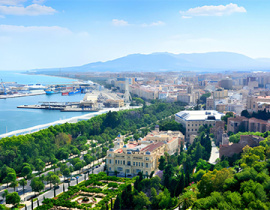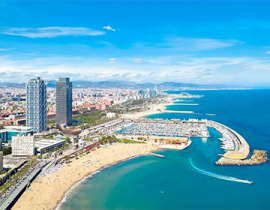- Home
- Blog
- Legislation
- Getting a Tourist License in Spain
Getting a Tourist License in Spain
If you’re planning to invest in a Spanish property and rent it out, the Spain tourist license is an absolute must! Understanding the tourist license Spain process is key to legally welcoming guests and ensuring peace of mind. But let’s start with the basics: what is a tourist license in Spain, why it’s crucial, how to get a tourist license in Spain, and what to expect in terms of tourist license Spain cost?
Understanding the Tourist Rental License in Spain
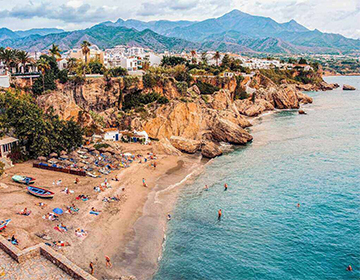 In Spain, a tourist rental license Spain, also known as a Spanish tourist rental licence, is the official permit that allows real estate owners to legally rent their properties to tourists on a short-term basis. The term holiday rental license Spain is also commonly used. Essentially, this is a legal safeguard to ensure real estates meet quality, safety, and habitability standards before being listed to travelers.
In Spain, a tourist rental license Spain, also known as a Spanish tourist rental licence, is the official permit that allows real estate owners to legally rent their properties to tourists on a short-term basis. The term holiday rental license Spain is also commonly used. Essentially, this is a legal safeguard to ensure real estates meet quality, safety, and habitability standards before being listed to travelers.
Since 2025, the process has become more streamlined through a national registry tourist rentals Spain, requiring real estate owners to register their listings with a centralized database. However, this registry is separate from the license itself, you must hold the tourist licence first before registering.
Why Is the Tourist License So Important in Spain?
Why bother with a tourist rental licence 2025 when renting seems straightforward? The answer lies in compliance and consequences.
- Legal Compliance: Without the Spanish tourist license, renting to tourists is illegal, and penalties are serious. In regions like Catalonia and the Balearic Islands, fines may range from €400,000 to €600,000.
- Online Visibility and Credibility: Platforms like Airbnb or Booking.com may delist your property if the tourist license registration Spain is missing or invalid.
- Trust and Safety: Holding the license signals to guests and insurers that your property meets safety, insurance, and quality requirements.
The New Regulatory Landscape in Spain in 2025
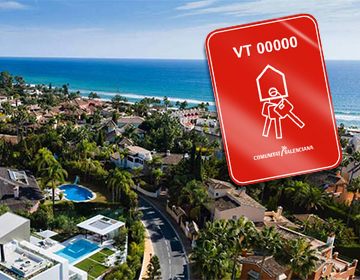 Spain’s short-term rental regulations have undergone major changes:
Spain’s short-term rental regulations have undergone major changes:
Unified Digital Portal (Ventanilla Única Digital): Since 2025, all applications must go through this centralized online system. It allows you to submit documents, pay fees, and track your application in real-time.
National Registry for Tourist Rentals: After receiving your license, you must register your property online. This registry is aimed at improving transparency and monitoring.
Horizontal Property Law (LPH) Reform: Since April 3, 2025, a homeowners' association (HOA) can veto tourist rentals if 60% of owners agree. They can also raise community charges up to 20% for tourist-use properties.
How to Get a Tourist License in Spain
Here is how to get tourist license Spain step by step after investing in real estate:
Research Local Regulations: Requirements differ between autonomous communities, such as Andalusia, Catalonia, Valencia, Balearics, or Canary Islands. Be sure to understand your region's specifics.
 Prepare Required Documents:
Prepare Required Documents:
- Deed of ownership or lease agreement
- Cédula de habitabilidad or first-use license
- Energy efficiency certificate
- Civil liability insurance (coverage often between €150 and €500/year)
- Technical plans, occupancy certificate, etc.
Submit via the Unified Digital Portal: Upload your documents, fill in the responsible declaration, pay any administrative fees, and get a tracking number.
Inspection (if required): Some regions may require physical inspection before issuing the Spanish tourist license.
Receive and Display License Number: Once approved, you’ll receive a license number that must be displayed on all listings as part of proper compliance.
Tourist License Spain Cost
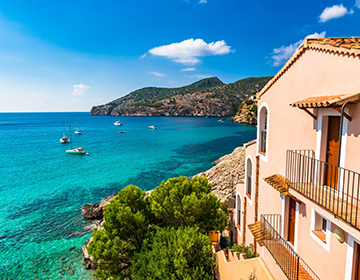 So how much does this cost? Let’s break down tourist license Spain cost by region:
So how much does this cost? Let’s break down tourist license Spain cost by region:
- General Range: €1,000 to over €20,000 depending on property type and region.
- Valencia / Andalusia: No direct licensing fee in some cases, but you’ll need an urbanistic certificate costing around €70–90 (taking up to 2 months).
- Murcia: Free for first 2 places; up to €86 for properties with over 8 places.
- Benidorm (Alicante): Administrative fee between €250–500, plus additional costs for safety compliance and documentation.
- Platform and Insurance Costs: Liability insurance (€150–500/year) and energy certificates add to the overall cost of tourist rental license Spain.
Regional Differences & Challenges in Spain
Catalonia: Potential halt on issuing new licenses; tight restrictions. Renting without tourist license Spain consequences are harsh, including delisting and fines.
Balearic Islands: Strict control and tourist taxes; rental caps and fines up to €500,000 for unlicensed rentals.
Madrid / Andalusia / Valencia: More structured pathways, but still require close attention to documentation and community rules.
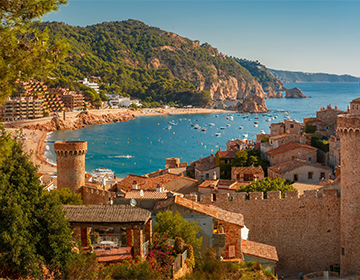 HOA Approvals: In many buildings, regional tourist license Spain requires consent via community vote with a 60% threshold.
HOA Approvals: In many buildings, regional tourist license Spain requires consent via community vote with a 60% threshold.
Consequences of Renting Without a License in Spain
- Ignoring tourist license rules Spain can result in:
- Fines ranging from thousands to hundreds of thousands of euros
- Potential removal from platforms like Airbnb
- Risk of your property being sealed off or legally blocked from rentals
2025 in Review
In 2025, the tourist license application Spain 2025 process reflects Spain’s commitment to responsible tourism, balancing entrepreneurial opportunity with community protection. Whether you’re inquiring what is a tourist license, researching renting without a tourist license, or navigating holiday rental rules, understanding and following regional guidelines is paramount.
You need a tourist rental license Spain before listing.
- It must be obtained through the Unified Digital Portal.
- Costs and requirements vary dramatically, budget appropriately.
- Always comply with tourist license requirements Spain to avoid penalties.
- Display your license and register in the national registry tourist rentals Spain.







